20 Specific Questions I Have For Japan, A Country And Culture That I've Fallen In Love With (But Still Don't Quite Fully Understand)
Hey! I'm Evie. As a travel writer, I've been lucky enough to visit more than 50 countries, and have had some pretty incredible experiences along the way. But there's one destination that's particularly close to my heart: Japan.
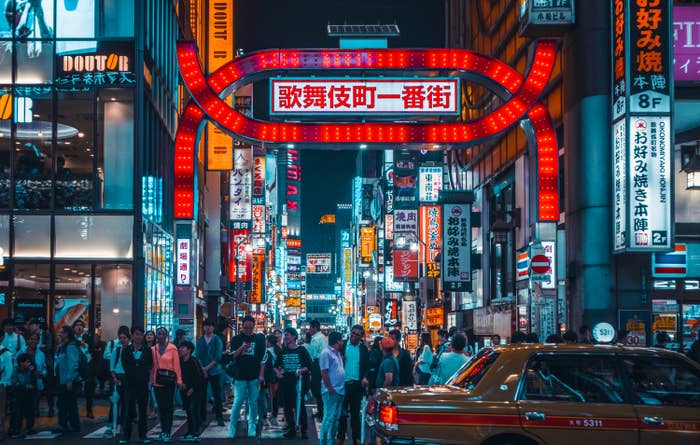
It was love at first sight for me and Japan (on my end, at least). Since my first introduction in 2016, I've visited Japan several times, and I even got the opportunity to live there for several months.
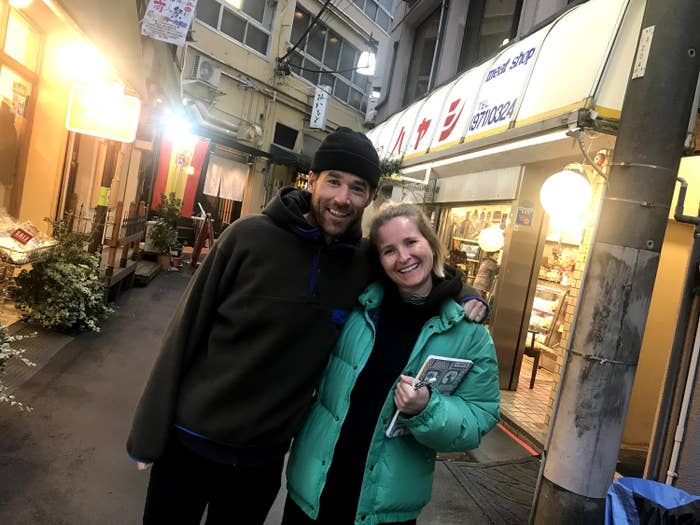
I've traveled around the country by van, lived in a small mountain town, and worked out of a share house in Tokyo. Luckily, my husband, Shane, loves Japan as much as I do.
But funnily enough, the more time I spent in this wonderful country, the more confused I felt. Japan is incredibly advanced and modern, yet it remains relatively untouched by Westernization. The result is a country that is enchanting and bizarre (in the best way possible) — especially to a Westerner like me.
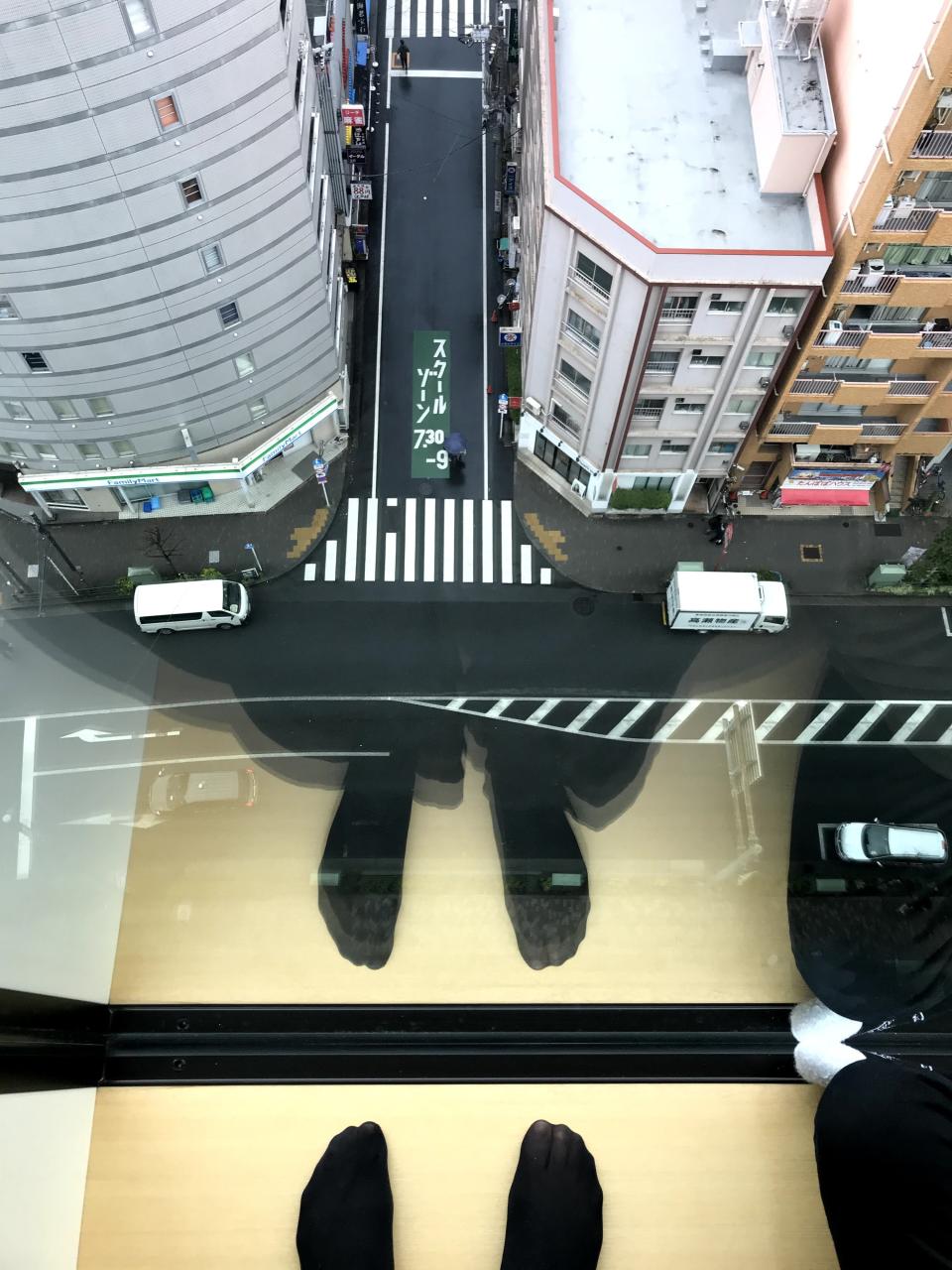
While Japan isn't untouched by Westernization, it has held tight to its own culture...far more than most countries where the influence of the West is heavily felt. This is due in large part to Japan's two-century period of isolation from the rest of the world.
The result is a country that came of age without the influence of other cultures and countries. It's a place that will leave you fascinated, curious, and craving more.
So without further ado, here are a bunch of questions I have for Japan.
1.Why don't you ever break the rules?

I'll never forget the reaction I got when I crossed the street before the green man appeared on the crosswalk sign. That's because even when there isn't a car in sight, people in Japan wait to cross the street until they are officially signaled to do so.
This rule following, group-before-self mindset ensures that even during rush hour, everything flows smoothly. But, I have to wonder if after a crappy day, people are ever tempted to break the rules, cut in line, or (gasp!) cross the street illegally.
2.And do you ever get exhausted dealing with loud, clueless gaijin like me?
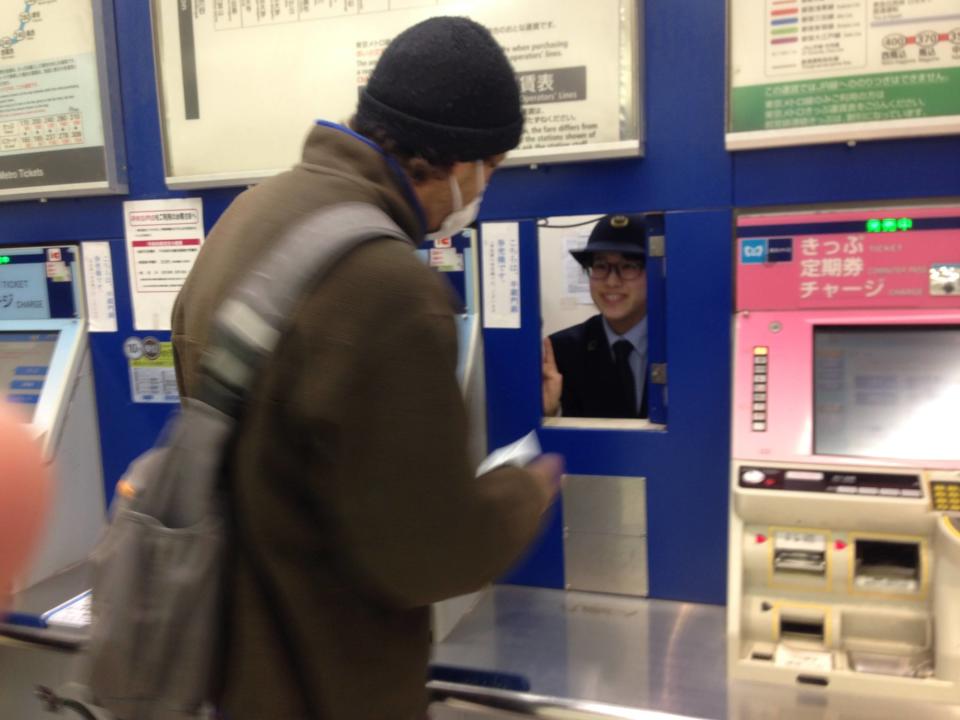
Generally speaking, people in Japan are very polite and law-abiding. So you'd probably think that visiting gaijin (outsiders), with their tendencies to talk loudly and break the rules (ahem, me), would be treated with distain. Yet I was never yelled at or treated poorly. In fact, everyone I met seemed to have endless patience and understanding for foreigners.
3.As a culture with so many social ~rules~, why is it still OK to loudly slurp noodles?

Japan has enough social and etiquette rules to make your head spin, but it turns out slurping your noodles is A-OK. Drop by any ramen spot, and you'll hear loud slurping sounds in every direction.
As it turns out, there is a good reason for all the noise you might encounter at a ramen shop. According to the Japanese, slurping noodles brings out the flavor much like swirling your glass at a wine tasting. It also cools the noodles, and finally, it allows you to eat those noodles quickly before they get overcooked in broth and lose their texture.
4.Do you ever get so hungry you're tempted to eat on the go?
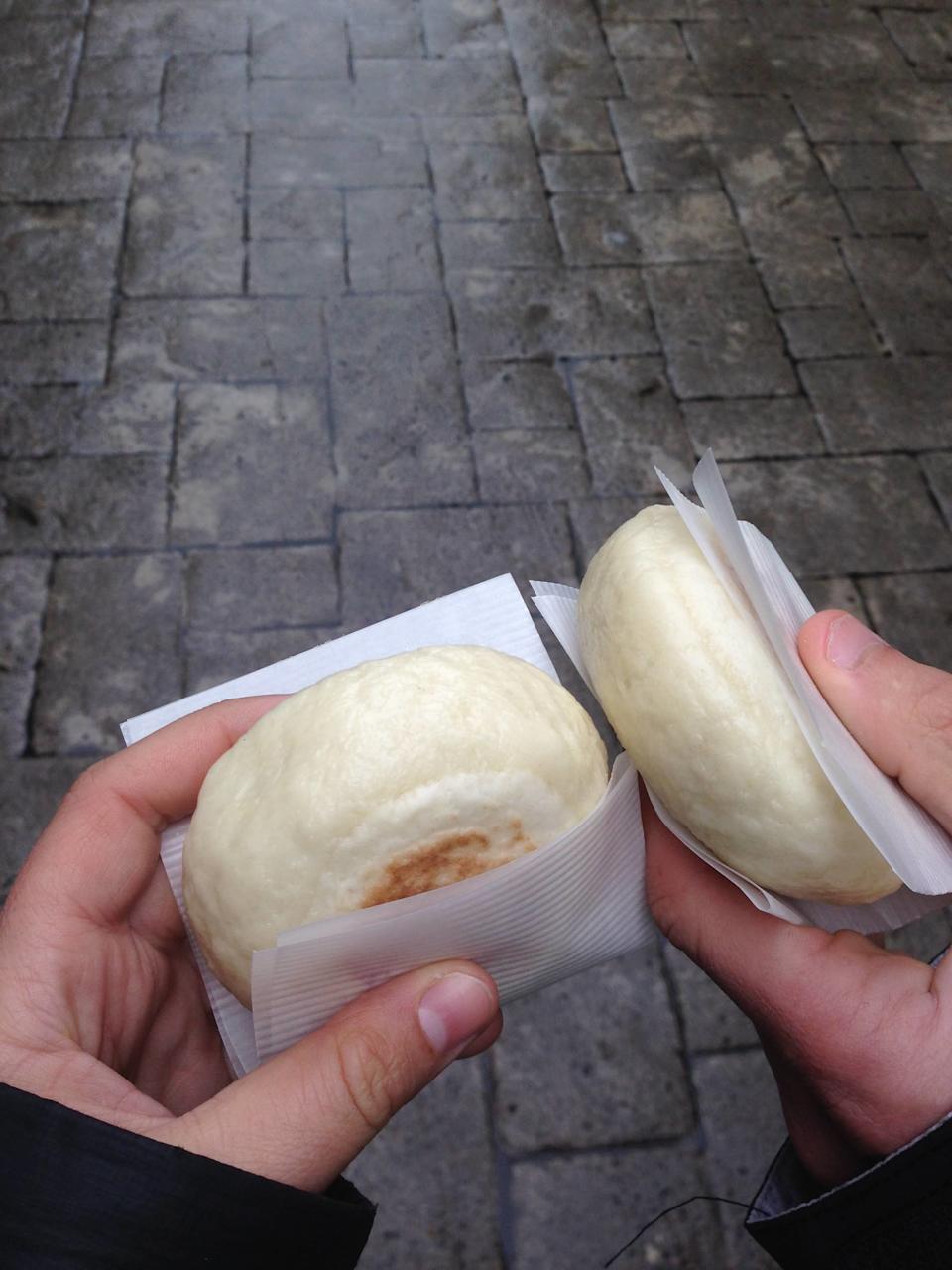
Even though it's common to see people hurriedly slurping soup at a soba joint, it is considered rude to eat while walking or standing on the street.
From what I understand, there's no rule forbidding eating on the go, but it remains an unspoken cultural norm. If you want to dive into your convenience store bento box, head to a park bench or dig in at the store's dining area.
5.Why is it OK, and even normal, for salarymen to be passed out drunk?
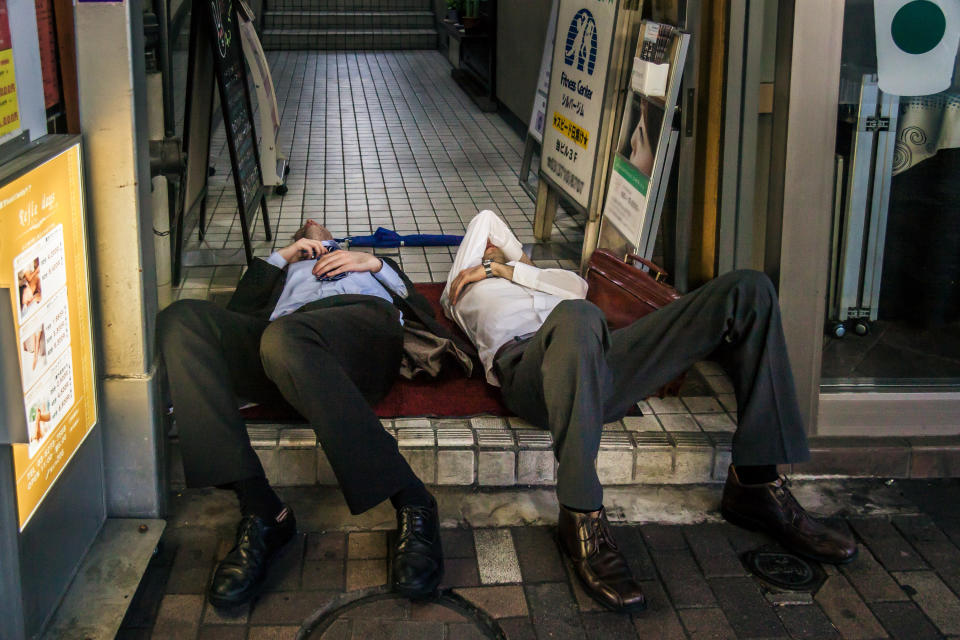
If you spend enough time in Japan, you'll see plenty of suited men passed out drunk — often in their seats on the train.
But there's actually a reason for this common behavior. Apparently, Japanese culture dictates that office workers can't say no when their boss offers them a drink, resulting in a lot of very drunk men headed home after a day of work and a few too many beers. Despite all that, I can't explain why I didn't see any women passed out in public.
6.Why can you still smoke in some restaurants and bars, but you can't light up on the street?
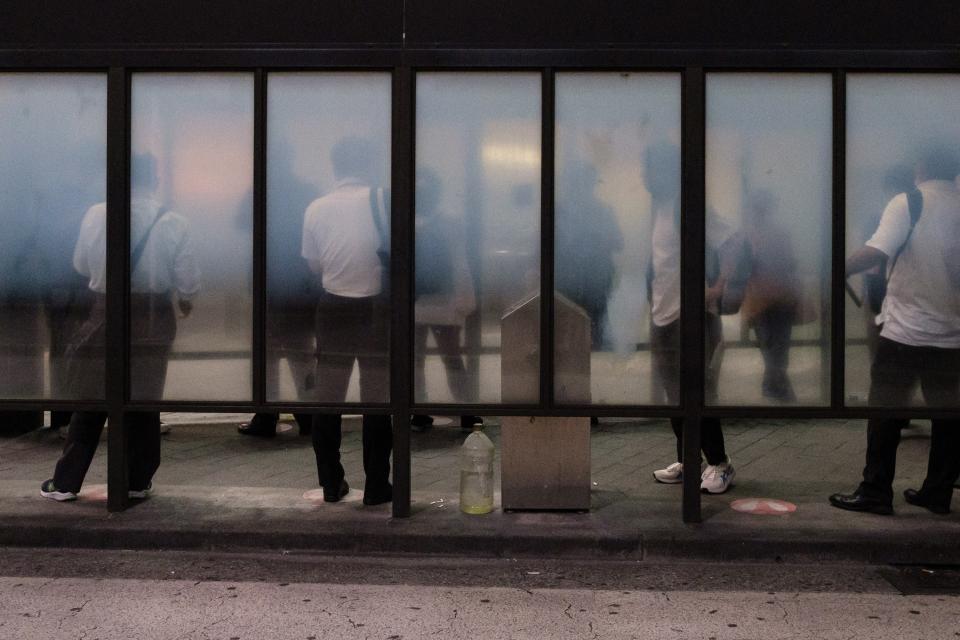
Like the French, people in Japan tend to smoke cigarettes. And while you can still smoke inside some restaurants and bars or light up in your office's smoking room (seriously), if you want to smoke outside, you'll often have to go to a designated, outdoor smoking area.
Confusing. Right? I'd love some answers.
7.Does it ever feel funny bowing to people?
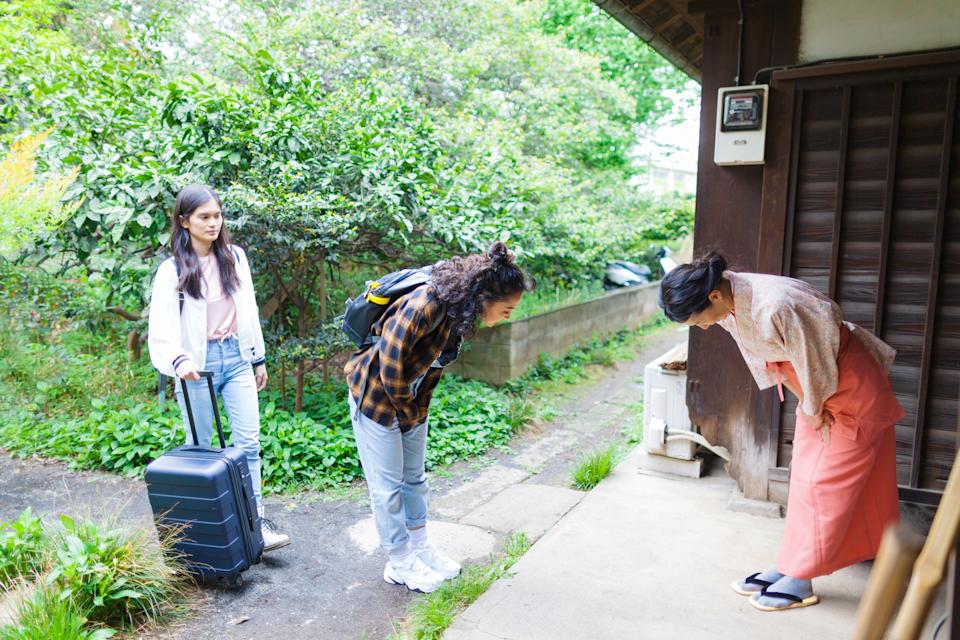
Rather than greeting people with a hug or a handshake, people greet one another in Japan by bowing. Even strangers will give you a slight nod as you pass in the street.
Culturally, it's a nice way to show respect, say thanks, acknowledge someone, or apologize, but I have to wonder... Does it ever feel odd or dated?
8.Does it ever annoy you you to constantly take your shoes off and on?

In Japan, you'd never walk into someone's home with your shoes on (and frankly, this rule makes a ton of sense). But even some traditional Japanese restaurants, teahouses, and inns require that you remove your shoes before entering. While most places offer slippers, you'll even have to take those slippers off — and swap them with a pair of special toilet slippers — when you go to the bathroom.
Sanitary-wise, it makes sense, but it takes a lot of extra work — especially if you're wearing lace-up shoes.
9.Do the recycling protocols ever confuse you?

Japan takes recycling to the next level. In the US, we throw the entire plastic water bottle in the recycling bin. In Japan, however, you remove the cap and drop it in the designated cap bin, peel off the plastic sleeve and place it in a second bin, and finally, put the plastic bottle itself in a third bin.
As you might imagine, there are five or more separate bins at every public trash and recycling station in Japan. Which begs the question, do people get tired of following this strict process?
10.For a country that's so conscious about recycling, why are fruits with a peel still wrapped in plastic? And why do you use so many plastic bags?

One thing that always confused me is the fact that fruits like bananas and oranges — which have a natural protective covering — are still wrapped in plastic wrap when sold individually.
Similarly, cashiers seem to love using plastic bags. If you buy a pack of gum and a bottle of tea from a convenience store, the cashier will often put the gum in its own little bag, tape it closed, and then put the little bag of gum and the bottle of water in a larger plastic bag.
There's a reason why the only Japanese phrase I know is: Fukuro wa irimasen, which translates to "I don't need a bag."
11.How are the city streets so quiet and so clean?!

Just a few blocks from Tokyo's Shibuya Crossing, the world's busiest pedestrian intersection, the streets are eerily quiet — even at rush hour. The same goes for all over the city.
Couple that with the fact that you'll very rarely see trash or debris on the streets, even though public trash cans are pretty rare to come by. Do the Japanese carry trash around in their pockets? Do they keep mini trash bags in their purses? I have so many questions.
It's just another of Japan's great mysteries.
12.Why does everything including food have a cute little face on it?
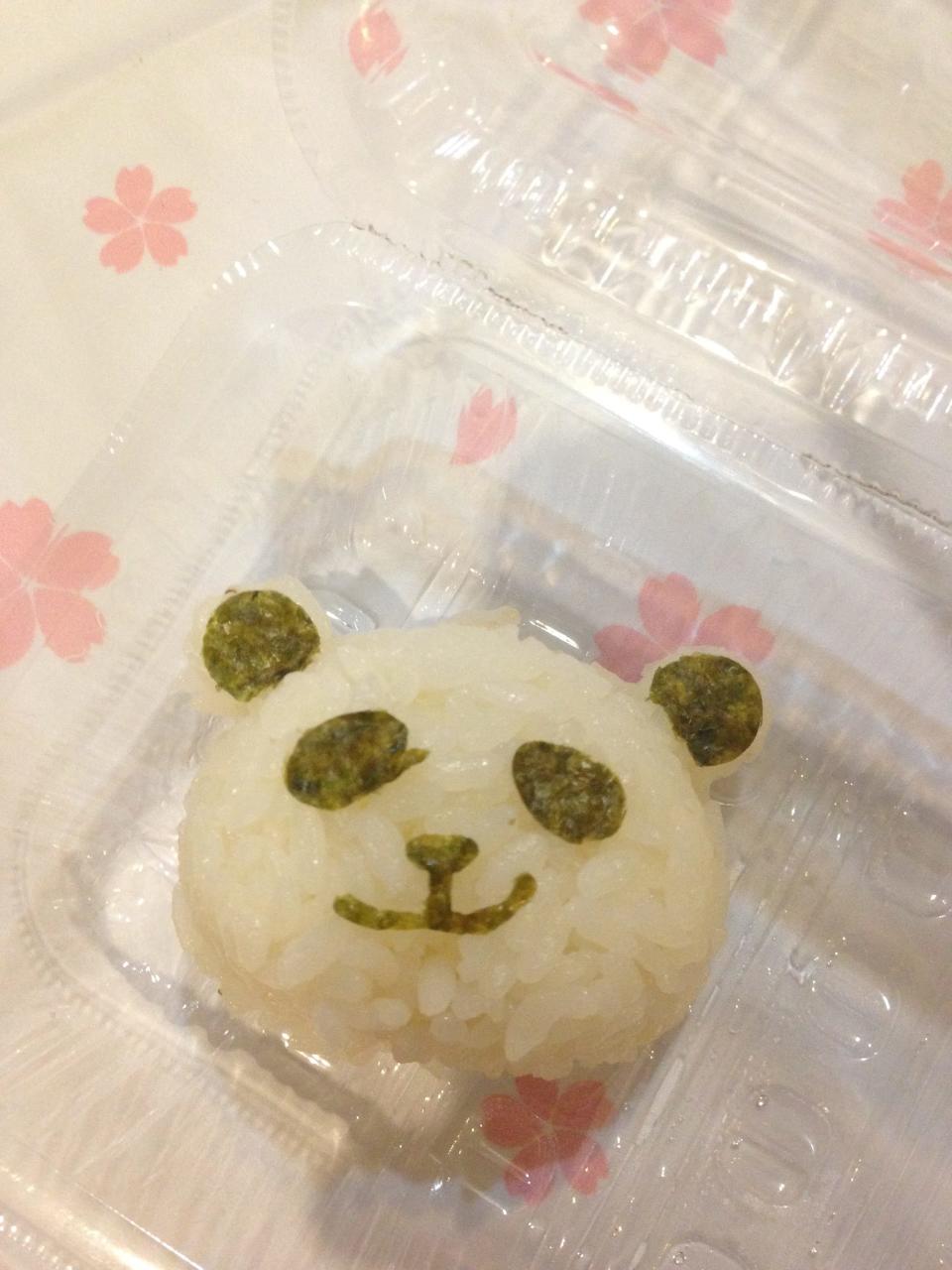
One of my absolute favorite things about Japan is that everything from your lunch to a stapler has a little face on it or it's made in the shape of a creature or character.
Making things cute (a term called kawaii) is something Japan does well. And everyone is totally on board with it, from the salaryman headed to the office with a plush kitty keychain on his briefcase to the 50-year-old woman with a Pusheen phone case.
13.And why does everything — from towns to banks — have a mascot?
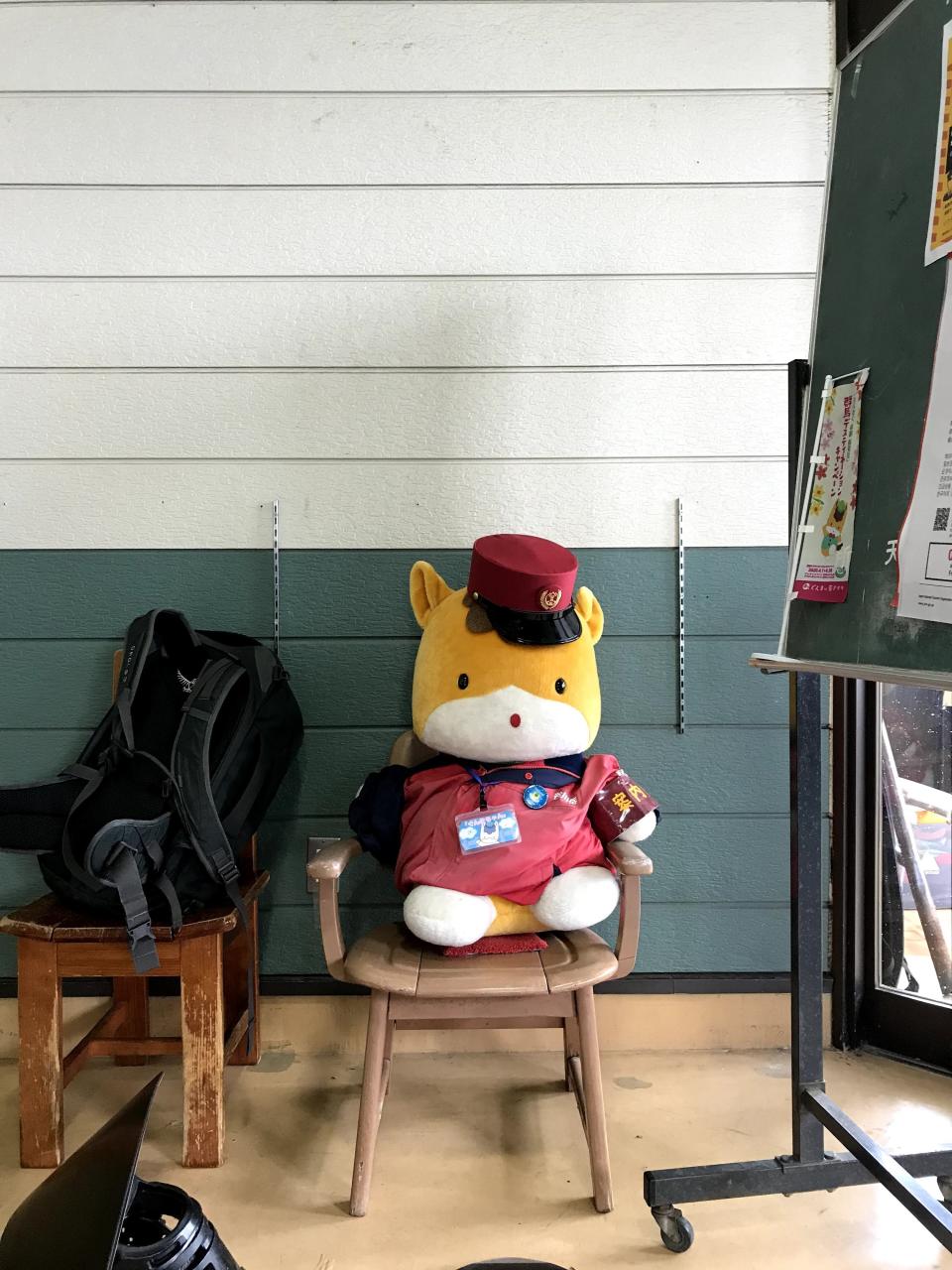
The Japanese obsession with all things cute and adorable manifests itself in yuru-kyara, or mascot characters that are used to promote tourism to certain regions or to make a business more personable. These mascots, which you'll find in the form of stuffed animals or hard-plastic keychains, are most often a humanized food or animal.
14.Are things like maid cafes and girl bands with a troupe of adult male fans really OK?
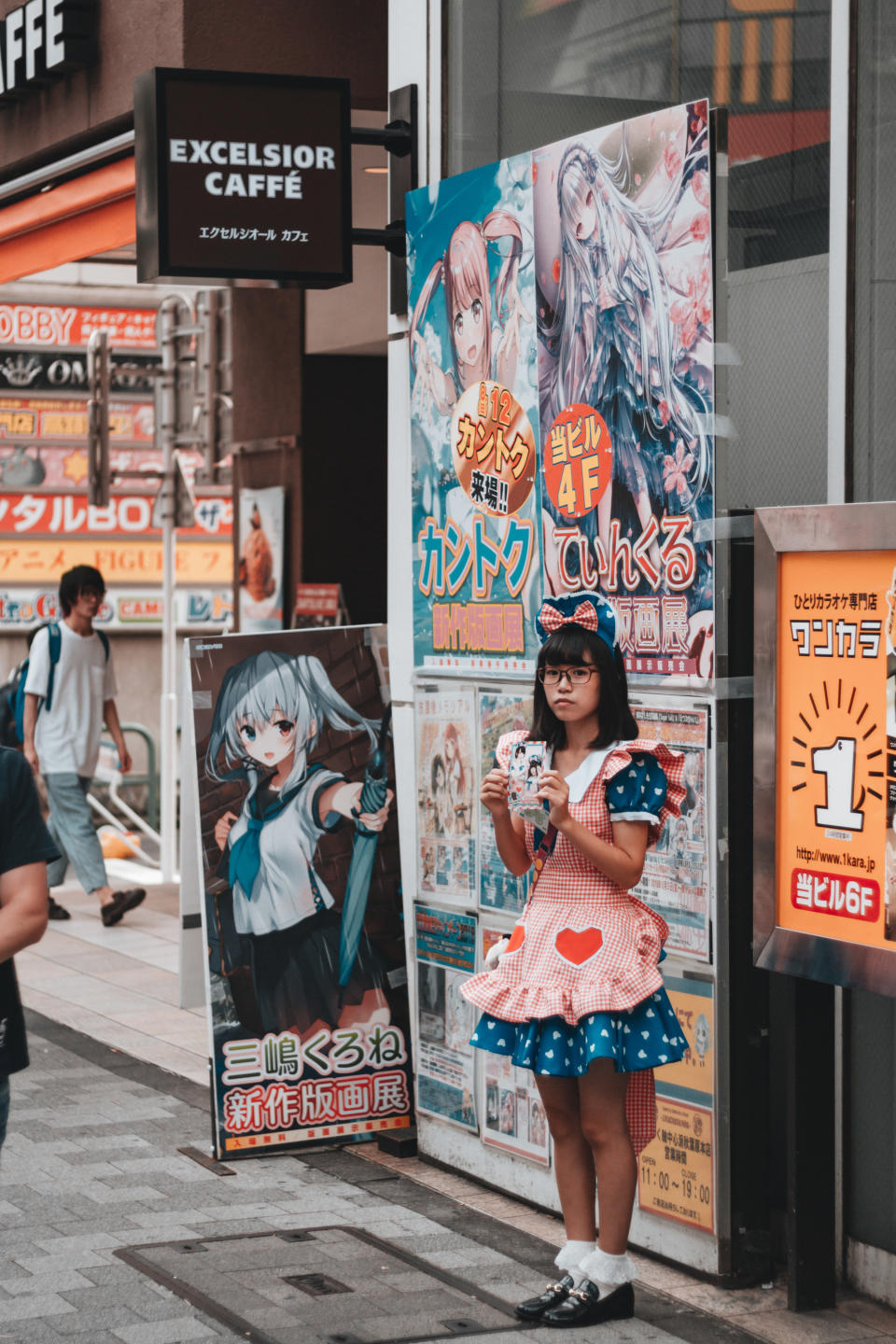
At maid cafes, women dressed as maids spoil predominantly male patrons with selfies signed with cute handwritten messages, Hello Kitty latte art, and songs and performances. The vibe is fun and light, but it still makes you wonder...
Similarly, I went to see a young, all-female J-pop group perform in Tokyo and was shocked to find that the audience that knew every word and sported the band's gear was mainly comprised of men in their 40s.
Is it all OK? Or is there something a bit weird about it?
15.Do couples actually use love hotels to meet up?

Japan's seedy-looking love hotels complete with neon signage and automated menus can be rented by the hour. They're highly discreet: You choose a room by pressing a button and pay an unseen cashier, which makes them seems perfect for affairs or one-night stands. Despite all that, I've heard that serious couples also use these love hotels. Can it possibly be true?
16.How come finding a vegetarian meal is so tricky?

I have a feeling that most travelers to Japan don't mind (or notice) the lack of vegetarian food in Japan. But as a vegetarian navigating the restaurant scene, I found that even menu items with no visible meat are usually made using a meat- or fish-based stock. And while vegetarian, and even vegan, restaurants exist, they are few and far between — even in major cities like Tokyo.
17.How do you manage to pick up tiny grains of rice or slippery noodles with chopsticks?
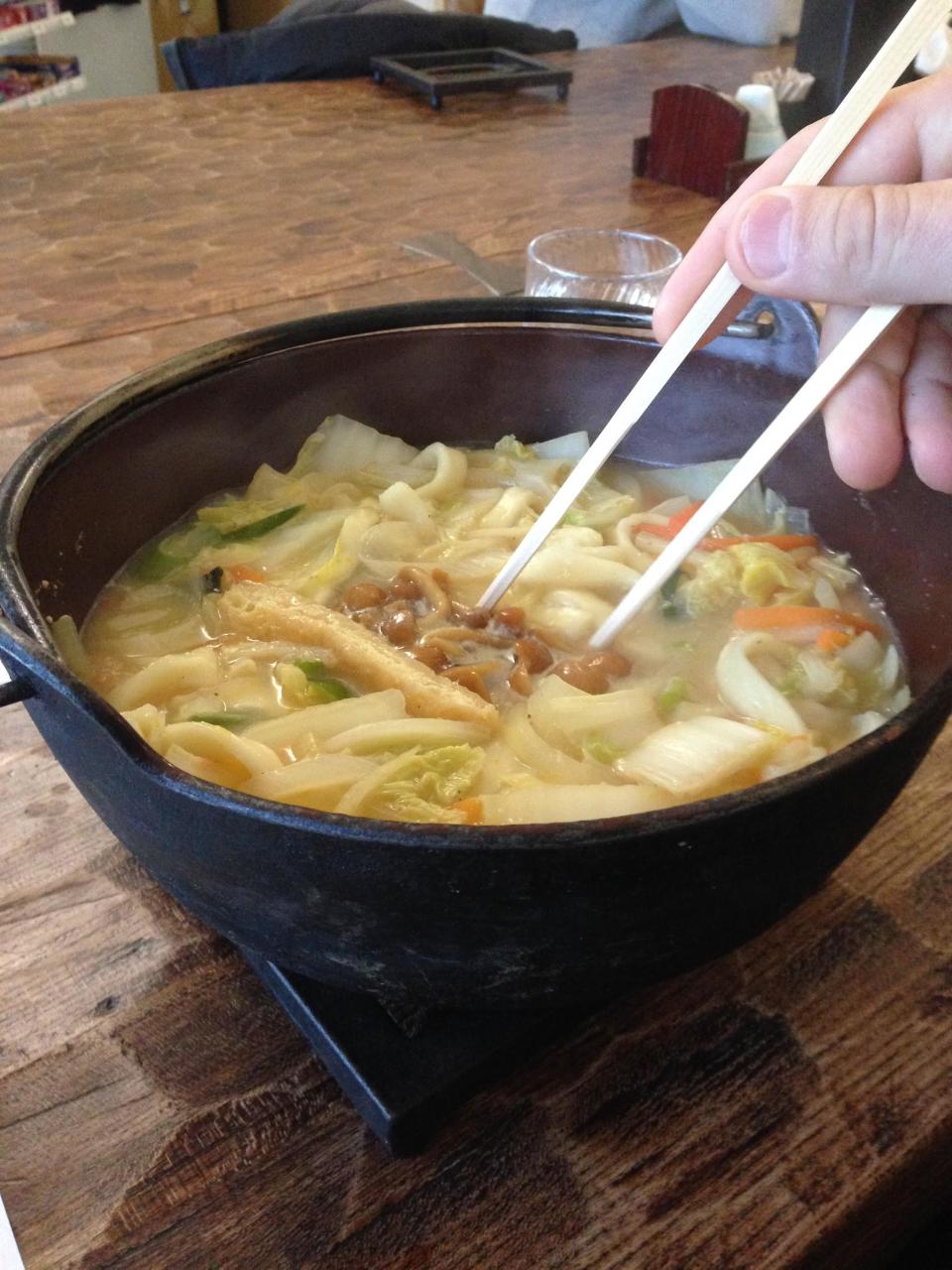
I like to think of myself as fairly worldly and well versed in international cuisine, but give me a bowl of udon soup and you'll see just how lacking my chopstick skills are. I'll never understand how you're expected to pick up a glob of rice or a chopstick-full of slippery noodles without making a serious mess.
18.What's the obsession with plastic food?

One of my favorite things about Japan is the plastic food replicas you'll find in the windows of many restaurants. I *think* it's to show diners what to expect (almost like an elevated picture menu), but it's a concept I always found quite strange.
I became so obsessed with these super realistic replicas that I went to a plastic food-making class to see how they're made.
19.Why do you love Kit Kats so much?

Kit Kats may be made by Nestlé, a Swiss company, but the Japanese have made this popular candy their own. You'll fine tons of one-of-a-kind Kit Kat flavors all over Japan (think: green tea, wasabi, apple, and yogurt, to name a few).
I'd honestly love to see what they could do with Reese's.
20.And finally, why haven't you capitalized on all your amazing inventions (i.e., toilets, hot-drink vending machines, heated tables)?
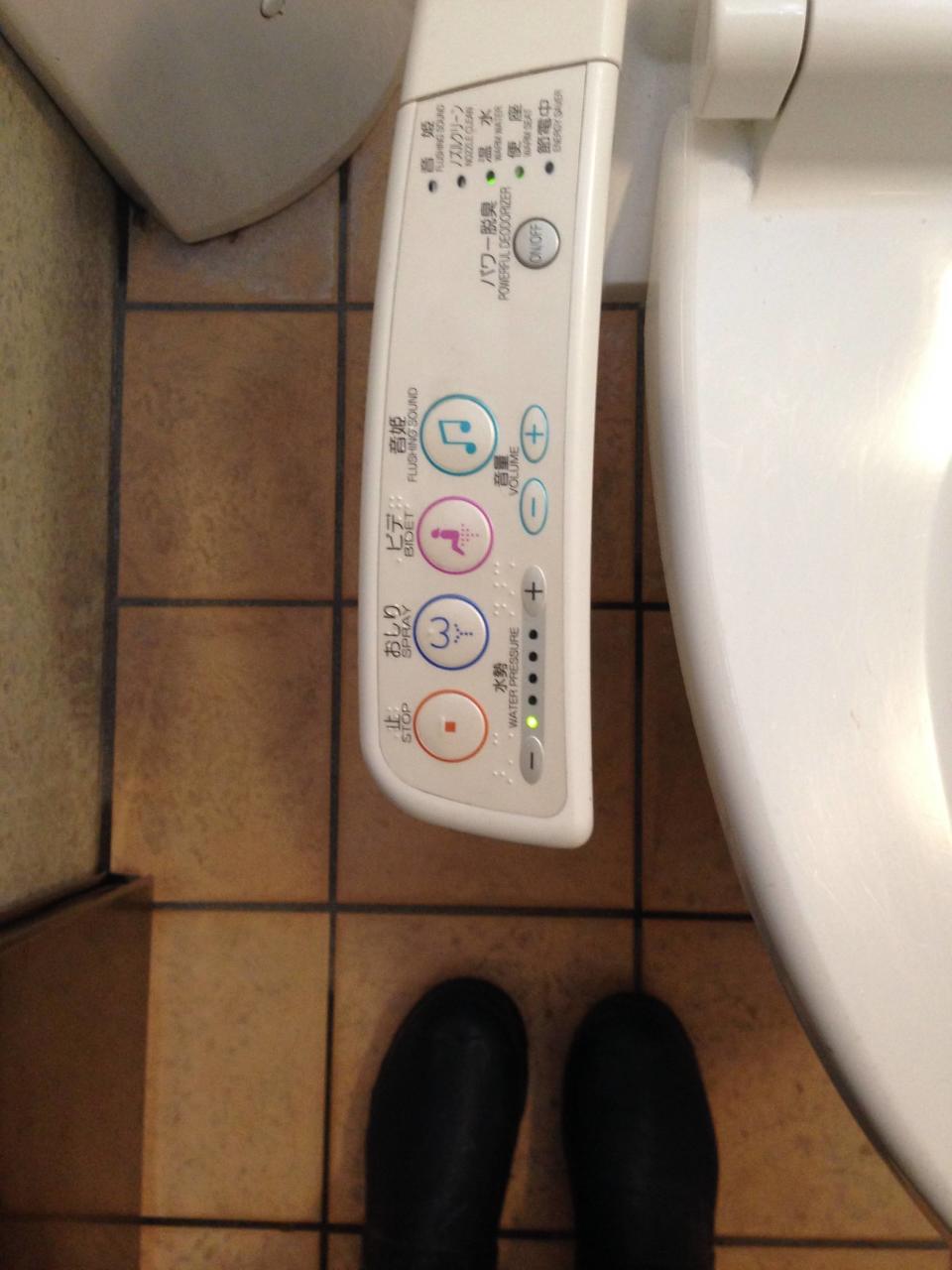
I love living in the US, but after visiting Japan I couldn't help but feel as if home was seriously lacking. I don't know how some of Japan's more creative and useful products haven't taken off all over the world.
For example, their toilets, which have built-in bidets, seat warmers, drying features, and privacy sounds so no one has to hear you use the bathroom. Or kotatsu, an electric-heated table with a blanket draped over it that makes a night in a cold building cozy and enjoyable. You'd think that the whole world would be dying to get their hands on these gadgets.

